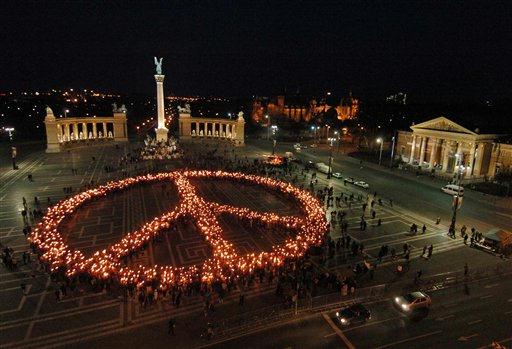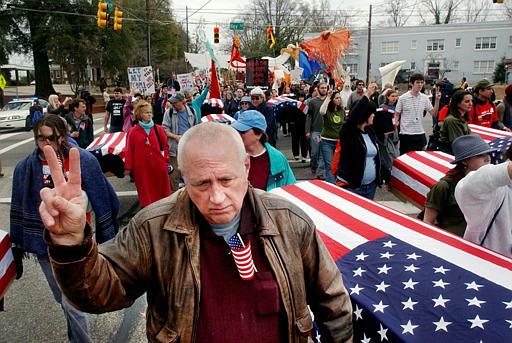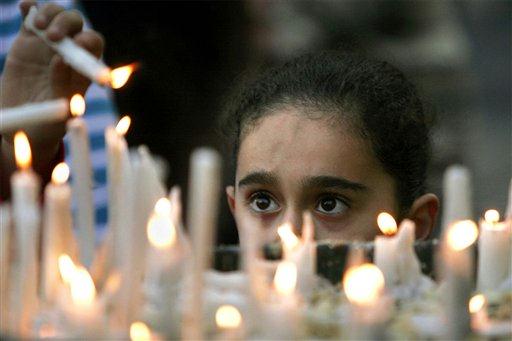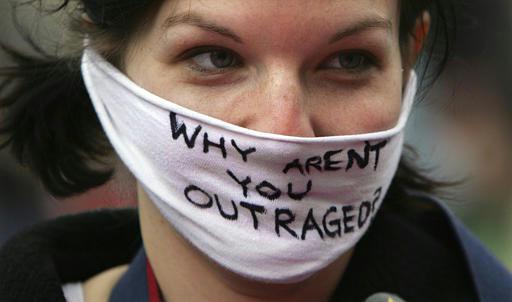The sorry plight of the refugee children
Paul Lewis
Thursday May 24, 2007
The Guardian
Ramazan and Abdul-Khaliq live alone in a damp, terrace house in the western suburbs of Birmingham. The Afghan boys wake around 11am, skip breakfast, and usually spend the day watching children's television, sitting cross-legged on the floor in dim light that seeps though closed curtains.
They are young - 13, they say - and with no one to look after them they get by on a diet of oven chips, tinned tomatoes and ice cream. When the sun is out, they race across the local park, chasing a football with other refugee boys. Neither goes to school, although they attend college a few hours each week and receive occasional visits from social workers.
Article continues
The boys came to Britain from Afghanistan separately in the middle of last year, stowed in lorries.
Ramazan Ali is from Helmand province. His father, he says, was involved in a land dispute with the Taliban. Abdul-Khaliq Kharoti, in contrast, is from Baghalan province, the son of the commander of a pro-Taliban guerilla group. In their homeland they would be considered enemies.
But fending for themselves in their new home in the suburb of Smethwick, Ramazan and Abdul-Khaliq only have each other. Thrown together, they have become best friends with a common grievance: Britain, they say, has added three years to their respective ages.
Lacking relevant documentation Ramazan and Abdul-Khaliq have no idea how, why, when or even where they were assessed to be 16. Ramazan recalls telling an official that he was born on October 26, 1993. But he says when a social worker came to see him, he was told, on the spot, that he must be 16. His Home Office papers now state he was born in 1990. Abdul-Khaliq, who has lost all his documentation, said the same social worker told him to sign a piece of paper stating he was 16. "After that he comes to me and tells me to sign that paper, but I say no," he said.
The predicament of the two boys is far from unique. A report today will say that social workers are routinely disqualifying unaccompanied asylum-seeking children from foster care and school places by assessing them to be older than they actually are, meaning that potentially thousands of minors are neglected by under-resourced local authorities.
The report alleges that social workers are under pressure from managers to exaggerate children's ages, and concludes that a "culture of disbelief" pervades the system, with children as young as 13 denied adequate care because they are labelled too old, even when they present documentary evidence to support their stated date or birth.
"When you talk to asylum-seeking children, it's very difficult to work out how old they are," said Heaven Crawley, from Swansea University, who conducted the research for the Immigration Law Practioners' Association. "Often they look older because they've been through a lot more. The fact that it is cheaper and easier for an authority look after older teenagers means that there is an incentive to categorise vulnerable children as older."
She stressed that the problem stems from the Home Office "almost routinely" disputing the age of asylum-seeking children. Recent figures show almost half of asylum applications from under-18s separated from their parents are disputed by the immigration service. The figures are even higher for Afghan children: of the 4,448 that arrived between 2003 and 2006 and claimed asylum, almost 3,000 are believed to have been age-disputed.
The children's commissioner for England, Sir Albert Aynsley-Green, said: "It's unacceptable that in too many of these cases the authorities fail to give young people the benefit of the doubt. I have been moved and angered by how children describe the disbelief they often face - and how they fear the practical consequences of being treated inappropriately or as an adult. The stories they tell me are powerfully substantiated in this report."
The Home Office plans to use dental x-rays - accurate to within plus or minus two years of an estimated age - under plans unveiled in an consultation into the treatment of unaccompanied asylum-seeking children, due to end next week.
The result of Ramazan and Abdul-Khaliq's age assessment has been far-reaching. Barred from a foster placement or attendance at a local school, the pair were initially placed in a hostel for over 16s before, they say, they were told they would be taken to live with a family. Instead they were driven to a house with mould on the walls and rubbish in the back garden, where they live unsupervised on £35 a week.
The future implications for the pair are graver still: both boys could be deported to Kabul late next year when - according to social services - they turn 18.
It is understood there are hundreds of teenage Afghan boys in and around Birmingham, the vast majority of whom were smuggled through Iran, Turkey and Europe in trucks. Invariably they arrive traumatised and in desperate need of help, but are left to reside in empty properties peppered around the outskirts of large cities.
Reza Sherahmad, an Afghan community worker in Birmingham, said dozens of Afghan boys have come to him seeking help. "It is common for them to say that Birmingham social services have given them artificial ages and they have been mistreated," he said. "How can these children know how to change a light bulb, use electricity or cook? It is dangerous leaving them alone in these houses." He is particularly concerned for the mental health of Afghan refugee boys, many of whom witnessed fellow stowaways - often brothers or cousins - die en route to Britain.
Ramazan and Abdul-Khaliq admit they are haunted by their journeys, especially in their nightmares. Ramazan lost his family as they crossed a border on foot; rushing through a rough mountain terrain in the dead of night with hundreds of other refugees, they became separated in the chaos. "I was shouting, calling their names," he said. "Whenever I asked the smuggler [to help] he said be quiet, I will take you to your parents. I was crying. Some of them [fellow travellers or agents] were laughing. Others said: don't worry, we will take you to your parents."
Ramazan deduced the grey tarmac and tall buildings of Birmingham must be his final destination because there were no more lorries to climb into. He was left totally alone. "I have asked people to help find my family, but no one has helped," he said. "They could be in Birmingham."
Abdul-Khaliq had a similarly traumatic recollections from his journey, which was paid for by an uncle. His memories of the transit are hazy: "I went under trucks sometimes - I was in the air conditioning vent. Sometimes I was on top of the axle above the spare tyre. I had only seen these things in films." The worst moment, he says, came when he was held captive with other illegal stowaways by people-smuggling racketeers. They demanded money, claiming not to have been paid by an agent further along the smuggling route. Abdul-Khaliq was beaten - not too severely, he says - and watched as his co-captives had their fingernails pulled out. Others had ears sliced off. "They showed me the ear. They said: 'look, give us the money, look at this'. They were not beating me that much, but they were beating the older ones."
When the boys cannot sleep in the middle of the night , they creep downstairs to the living room to listen to borrowed cassettes of Afghan musical poetry that lie strewn across the living room floor. Ramazan and Abdul-Khaliq are desperate. They do not know where to turn for help.
"Thirteen year-olds in England are different," said Ramazan, as he heard the sound of children returning from school outside his closed window. "They smile and they laugh. I can only think of problems with my family, problems with me. I cannot smile."
Last night the boys were in the care of a fully-staffed children's home after the Guardian disclosed details of its investigation to Birmingham city council. "Children's safety is our paramount concern," a spokesman said. "We will be urgently looking into this case to check on the safety [of these boys] and look at their age assessment. If they are, as reported, 13, we will move them to more appropriate care. We also take allegations of poor practice by one of our social workers seriously and will launch an immediate investigation."
http://politics.guardian.co.uk/homeaffairs/story/0,,2086810,00.html











